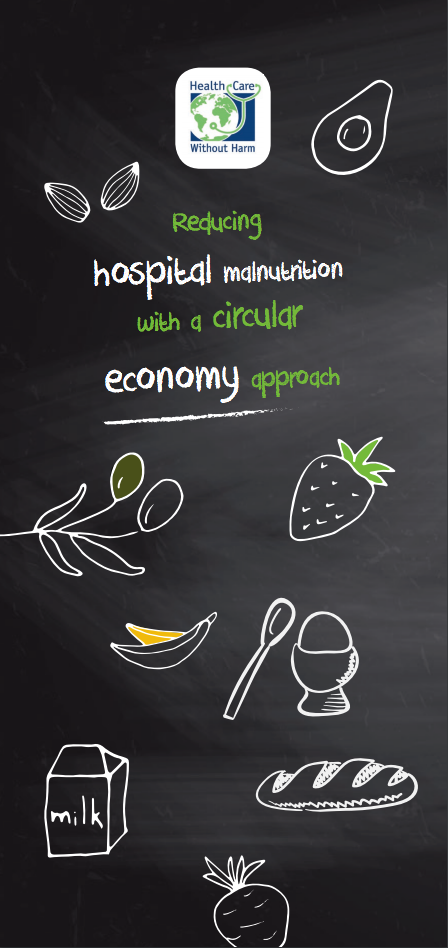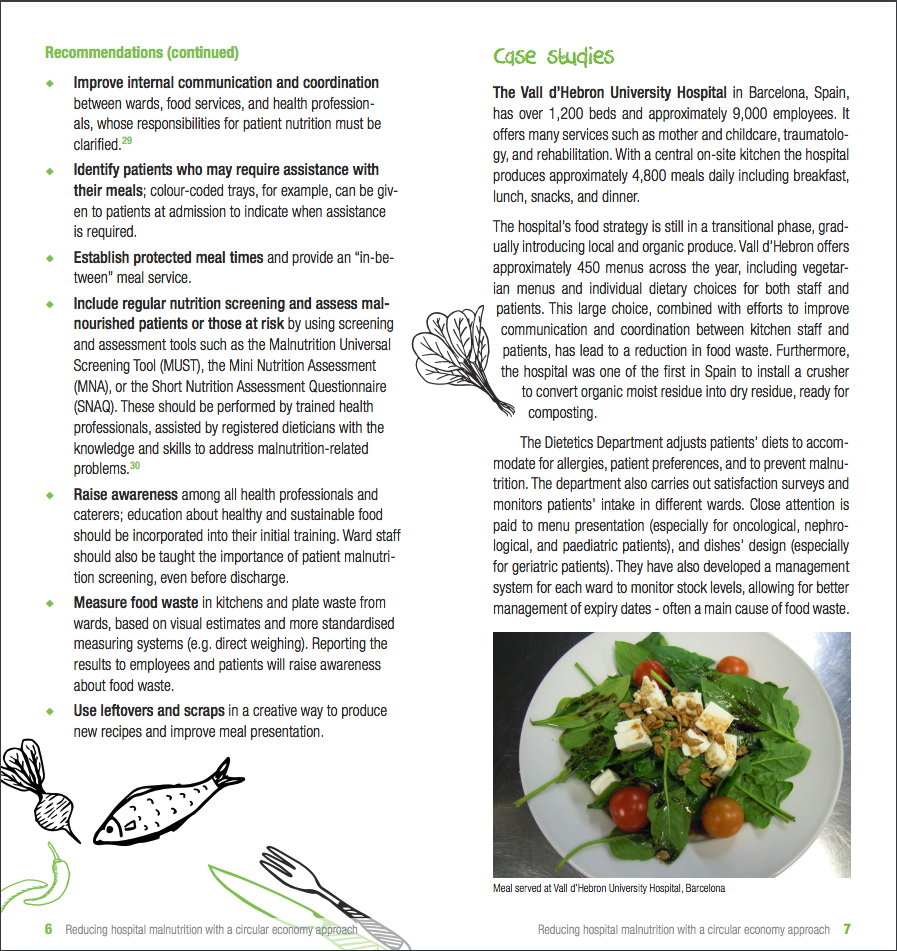Approximately 100 million tonnes of food is wasted annually in the EU across all stages of the food chain, and 14% of this food waste is attributed to food services alone. Not only does food waste have a significant economic impact - it also impacts on society and the environment, contributing to land and soil degradation, water pollution, and resource depletion.
HCWH Europe’s latest publication: Reducing hospital malnutrition with a circular economy
approach, explores the connection between food waste and malnutrition of patients, and how a healthy and sustainable food policy (that also covers procurement), can help improve patient care, reduce malnutrition and healthcare costs.Image
Several studies have shown that patients often do not consume a full meal, subsequently lose weight during their hospital stay, and an unacceptable number of patients become malnourished in healthcare facilities. Malnutrition, however, is often not detected or monitored which can lead to:
- Longer hospital stays
- Increased intake of medication
- Increased risk of infections or complications, leading to increased readmissions
- Possible fatality
These consequences have a direct effect on healthcare costs, both at an institutional and system level. A systemic multi-level approach is required to tackle the root causes of these costs, and should be implemented by hospitals and health systems to support sustainable food systems, and re-think the way in which food is purchased, prepared, served, and disposed.
According to a study at Wageningen University and Research in The Netherlands, over 25% of food purchased by healthcare institutions ends up as waste. Healthcare facilities must recognise food’s value for the health and wellbeing of patients during treatment, and improve the environmental and economic performance of their food service. There are two key elements vital for the development of a healthy and sustainable food policy in the healthcare sector: food procurement and food waste.
Learn from case studies of Spanish hospitals that have reduced their annual food waste through simple measures such as re-designing menus and catering to individual patients’ needs. Combined with the expertise of HCWH Europe and its members’ network, this brochure provides recommendations for a holistic, coherent, and integrated hospital food strategy.
